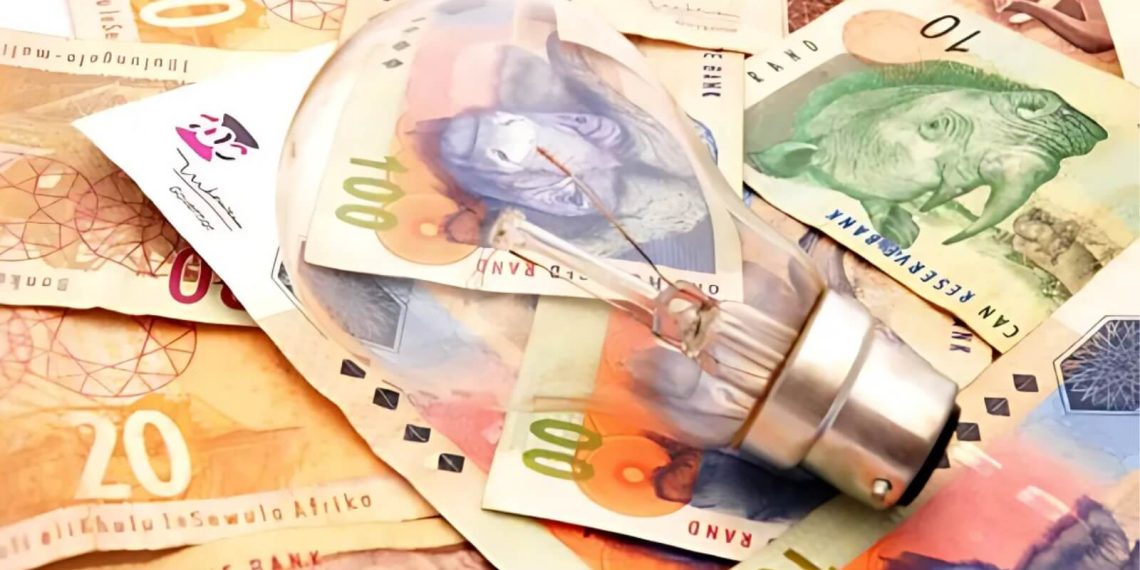In Temporary: Electrical energy Survey paints a stark actuality for South Africans
Debt Rescue’s newest nationwide survey reveals a stark actuality for South African households below intense stress from rising electrical energy prices.
Based on the findings, 79% of shoppers now depend on pay as you go electrical energy and solely load what they’ll afford — typically leaving houses with out energy earlier than month-end. Much more troubling, 86% of respondents mentioned they’ve already began slicing again on necessities equivalent to groceries and transport simply to maintain the lights on.
This comes simply as Eskom’s 12.7% electrical energy tariff enhance takes impact for direct clients, with others on account of face the identical hike from July.
Neil Roets, CEO of Debt Rescue, says the rise will make on a regular basis requirements even much less reasonably priced, particularly with a potential VAT rise looming in Might.
Roets is very essential of the timing, arguing that Eskom and the National Energy Regulator (Nersa) seem disconnected from the each day struggles of peculiar residents. He warns that hundreds of thousands will discover it even tougher to remain heat this winter. Whereas he helps subsidies for low-income households, Roets highlights the pressing want for presidency to replace municipal indigent registers — with over 80% of qualifying households nonetheless not listed. He additionally voiced deep concern over the proposed VAT enhance to fifteen.5% in Might and 16% in 2026, cautioning that it may tip many households into deeper monetary misery and rising debt ranges.
Grim impression of hovering electrical energy costs on South Africans revealed
By Ina Opperman
Enterprise Journalist
The outcomes of a brand new survey of the socioeconomic challenges dealing with South African shoppers and the way they’re coping with them paint a grim image of a chilly, darkish winter forward for many households on account of hovering electrical energy costs.
The newest Debt Rescue survey discovered {that a} whopping 79% of South African shoppers now depend on pay as you go electrical energy, they usually solely load what they’ll afford, typically leaving households at nighttime earlier than month-end.
It’s much more disturbing that the survey outcomes reveal that 86% of the respondents may already not afford the price of electrical energy and began to chop again on necessities equivalent to groceries or transport simply to have the ability to afford to maintain the facility on, regardless of already doing every little thing they’ll to minimise prices even forward of the April electrical energy tariff enhance.
Neil Roets, CEO of Debt Rescue, says the timing couldn’t be worse for struggling shoppers, because the Nersa-approved 12.7% electrical energy tariff enhance got here into impact on 1 April 2025 for shoppers who purchase their electrical energy straight from Eskom, with a potential 0.5% VAT hike looming on 1 Might. Different shoppers might be hit with the rise on 1 July.
“This can make fundamental necessities even much less reasonably priced for the typical client and will make the challenges of latest months really feel gentle by comparability,” Roets warns.
New electrical energy costs from 1 April
Eskom’s restructured electrical energy tariffs, which took impact on 1 April, imply that their clients face a 12.74% common enhance in electrical energy costs for the 2025/26 monetary 12 months, in keeping with a research by EE Enterprise Intelligence performed for the Organisation Undoing Tax Abuse (Outa) on the impression of tariff will increase on Eskom’s direct residential clients.
The brand new construction consists of three foremost residential tariff choices, specifically Homelight, Homepower and Homeflex, every designed to go well with completely different consumption patterns and desires.
Nonetheless, Roets says regardless of all good intentions of constructing pricing extra equitable, many low-income households might be hit laborious by the upper vitality prices. “This begs the query whether or not subsidies are the most effective path ahead to guard low-income households.
“I wholeheartedly assist subsidies to guard indigent households. With greater than 80% of indigent households in South Africa not on the related municipal indigent registers, it’s essential that authorities ensures that this occurs quick.“
Mounted charge for electrical energy elevated by 90%
Vitality skilled Patrick Narbel factors out that almost all residential customers are on the Homepower tariffs and that the most recent hike will see residential shoppers digging deeper into their pockets to afford electrical energy.
“This tariff has a hard and fast charge, which elevated by virtually 90% and has a variable charge that was once break up for the decrease 600 models you devour in a month and above that at the next value. Nonetheless, this isn’t relevant anymore and meaning should you use 600 models or much less, your tariff will enhance by roughly 20%.”
Roets believes Eskom and vitality regulator Nersa are clearly out of contact with the truth of the typical South African client and oblivious to the truth that greater than half of the nation is struggling to place sufficient meals on the desk and can battle to maintain their households heat in the course of the fast-approaching chilly winter months.
“In opposition to this backdrop of monetary misery, it’s unconscionable that Nersa took a choice that locations this fundamental utility out of attain of hundreds of thousands of individuals nationwide,” Roets says.
One other main issue is that the rand stays below extreme stress, caught within the crossfire of worldwide and native instability. One main menace stems from the continued impression of worldwide commerce tensions, whereas the potential collapse of the federal government of nationwide unity (GNU) provides to the uncertainty.
Collectively, these forces are weighing closely on the forex, inflicting it to steadily lose floor, buying and selling at R19,45 on Thursday afternoon.
Client confidence already plummeted on account of VAT enhance
Client confidence additionally plummeted because of the menace of a VAT enhance. Based on the Bureau of Financial Analysis (BER), South African client confidence plunged to its lowest stage since 2023, placing the nation’s financial restoration in danger.
Momentum Investments chief economist Sanisha Packirisamy explains that this surprising final result is a results of the federal government’s proposed two share level hike for VAT within the preliminary finances speech.
Amid the continued debate inside the GNU, Nationwide Treasury went forward and launched the Charges and Financial Quantities and Modification of Income Legal guidelines Invoice final Friday by discover within the Authorities Gazette.
The draft invoice, as printed on 12 March, supplies for the extremely disputed VAT enhance, that may hike the speed from 15% to fifteen.5% on 1 Might this 12 months and from 15.5% to 16% on 1 April 2026.
Impact of VAT hike ought to be prime of thoughts for SA’s leaders
“The impression of a VAT hike on South African shoppers ought to be the highest concern among the many nation’s leaders proper now. At this level will probably be the straw that breaks the camel’s again. There was a relentless onslaught on the pockets of hard-working shoppers, with meals costs escalating and never re-adjusting, constantly excessive rates of interest since 2021 and electrical energy and water costs fast-paced out of attain of peculiar residents.”
Roets factors out that the truth of the proposed VAT enhance is that it’ll inevitably lead to an increase in dwelling prices throughout the board.
“Because the cost-of-living will increase, peculiar residents can have much less disposable revenue. If spending shouldn’t be decreased and contemplating the anticipated enhance in the price of items, based mostly on the projected client value inflation of round 4.5%, that is merely not potential for hundreds of thousands of shoppers and can inevitably result in elevated debt.”
Read the full article from the Citizen










